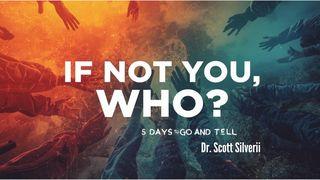3-Day Commentary Challenge - Daniel 6Sample

6:8. The law of the Medes and Persians, which may not be revoked. The handwriting on the wall from Daniel 5 had revealed the imminent collapse of Babylon under the blows of a dual monarchy, with the emphasis on Persia. This chapter makes it is clear that the critical views of the origin of the book of Daniel can only be maintained by ignoring the clear statements of the text. Darius the Mede is not presented here as the supreme monarch of a Median empire but as a Mede who ruled Babylon under “the law of the Medes and Persians.”
The book of Daniel is accurate in listing the Medes first because, in spite of the fact that the emperor, Cyrus, was a Persian, the bulk of his army at this time was still Median. Only a dozen years earlier he had conquered and absorbed the numerically superior Median army of the aging and corrupt King Astyages (550 BC) into a new and vastly superior Medo-Persian military unit. Two generations later, however, the Persian domination of the Medes had become almost complete, so that in the days of King Xerxes (486–65 BC) the Persian element could be mentioned first (Est. 1:19, etc., though not in 10:2).
This was a law “which may not be revoked.” Not even the king in Medo-Persia had the power to change a royal decree, and this could sometimes create great frustration, as depicted in the book of Esther (8:8). That is the main reason the Medo-Persian form of government was “inferior” to that of Nebuchadnezzar, the absolute dictator of Neo-Babylonia, whose slightest word was law. The head of gold had thus given way to arms of silver (Dan. 2:38–39). Apart from Scripture (Dan. 6:8, 12, 15; Est. 1:19; 8:8), the function of such a law cannot be clearly illustrated.
It seems quite surprising, however that Old Testament scholars have not given more attention to the incident recorded by Diodorus Siculus, a second-century BC historian, concerning Darius III (335–31 BC), who, in a great rage, condemned a certain Charidemus to death. Later, however, “when the king’s anger abated, he at once repented and blamed himself for having made the greatest mistake, but it was not possible for what was done by the royal authority to be undone".
If this means merely that Charidemus could not be brought back from the dead, it would be, in the words of J. Stafford Wright, “a piece of sententious moralizing and would not be improved by adding ‘by the royal authority.” Furthermore, “the use here of the perfect participle “what was done” and the adjective “royal" makes the statement a general comment on Persian law instead of a mere personal experience of Darius III, especially when “the law of the Persians” is referred to about ten lines earlier.
Thus, we have in a pre-Christian historian a rather clear testimony to the existence to the kind of Medo-Persian law referred to in Daniel and Esther. The self-authenticating Word of God does not need such secular confirmation to be believed; but we appreciate God’s providential provision of background information for biblical events.
The Prayer of Daniel, 6:10
(a) Toward Jerusalem. Daniel took very seriously the dedicatory prayer of Solomon at the completion of the great temple in Jerusalem. In this prayer, Solomon anticipated the day when God’s people would be in a land of captivity and would repent of their sins. Under such circumstances, “if they return to You with all their heart and with all their soul in the land of their enemies . . . and pray to You toward their land which You have given to their fathers, the city which You have chosen . . . then hear their prayer and . . . maintain their cause” (1 Kings 8:48–49).
Daniel knew that even though Jerusalem and its beautiful temple had been destroyed, it was still the theocratic center of the earth. In fact, even the very hours of his prayers were determined by the hours of sacrifice in the temple, though all such sacrifices had ended years earlier (see 9:21). Jonah likewise promised, in an hour of utter desperation, to “look again toward Your holy temple” (2:4), even though it must have been difficult in his situation to know in which direction to look!
(b) Three times a day. Daniel may well have used David’s daily prayer pattern as his own—“evening and morning and at noon, I will complain and murmur, and He will hear my voice” (Ps. 55:17).
(c) Giving thanks before his God. Under such circumstances, one might wonder what there was to be thankful for. But Spirit-filled men in the Old Testament era did not have to have the New Testament to know that “in everything by prayer and supplication with thanksgiving” they were to let their “requests be made known to God” (Phil. 4:6).
(d) As he had been doing previously. The Scriptures make very clear that Daniel did not wait until a crisis came to begin praying to his God. To the contrary, good prayer habits will give us deep confidence in God’s providential care no matter what may come. “For he will never be shaken. He will not fear evil tidings; his heart is steadfast, trusting in the Lord. His heart is upheld, he will not fear” (Ps. 112:6–8).
Scripture
About this Plan

This commentary challenge is taken from the Everyday Bible Commentary on Daniel 6 - Daniel in the Lion's Den. This plan highlights important themes found in the passage and is for anyone who desires to deepen their study of scripture and begin to discover the profound significance and nature of the Word itself.
More
We would like to thank Moody Publishers for providing this plan. For more information, please visit: https://www.moodypublishers.com/books/bible-study-and-reference/daniel--everymans-bible-commentary/
Related Plans

The Blessing of Jesus

Silent Nights, Peaceful Days: Rest for Moms at Christmas

And His Name Shall Be Called

The Results of a New Life in Christ

More Than a Story

5 Reflections on Mary's Song for Advent

14 Days of Breakthrough

IF NOT YOU, WHO?: 5 Days to Go and Tell

Train Up a Child: Christmas
